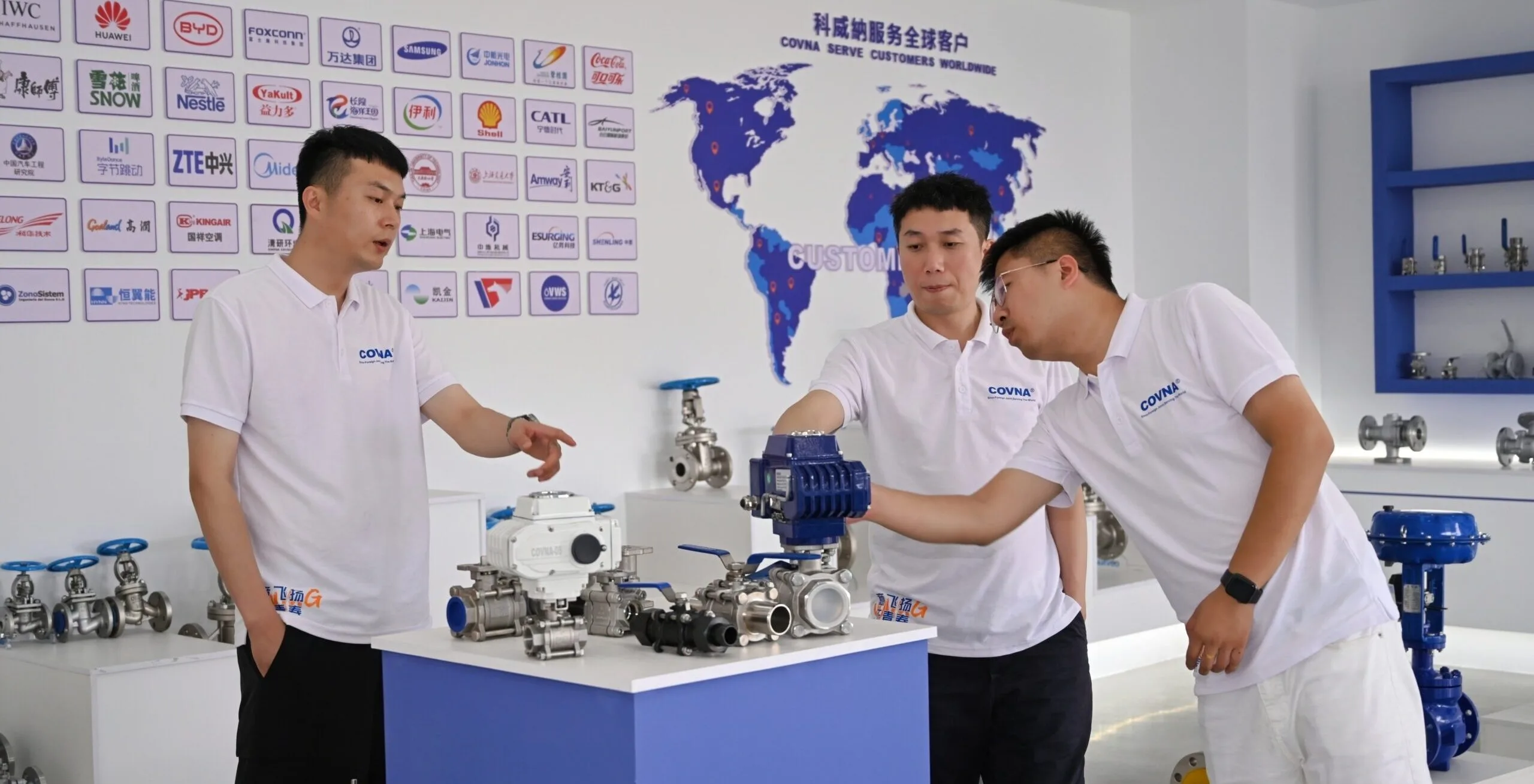
Valve Development Trends In 2024
Innovation and progress in valve technology
1.1 Application of intelligent valve technology
With the rapid development of technologies such as the Internet of Things, big data, and cloud computing, the valve industry is gradually moving towards intelligence. Intelligent valves have functions such as remote control, autonomous adjustment, and fault diagnosis, which can effectively improve production efficiency and reduce energy consumption. In the future, intelligent valves will be widely used in various fields to provide more intelligent and efficient services for industrial production.
1.2 Application of new materials in valve manufacturing
The research and development and application of new materials provide new development opportunities for the valve industry. For example, high-temperature wear-resistant materials, anti-corrosion materials, lightweight materials, etc. can meet the needs of use under different working conditions. In valve manufacturing, the use of new materials will increase the service life of valves, reduce maintenance costs, and help achieve green production.
1.3 Improvement of valve design and manufacturing process
As the application fields of valves continue to expand, the requirements for valve design and manufacturing processes are becoming higher and higher. Optimizing valve design, improving manufacturing accuracy, and reducing production costs will help enhance the overall competitiveness of the valve industry.
Valve-For-Pressure-Filters
Changes in demand in the valve market
2.1 The impact of Industry 4.0 on the valve market
The arrival of the Industry 4.0 era has brought new opportunities and challenges to the valve market. In this context, valve companies need to continuously improve product quality to meet the needs of high precision, high speed, and high reliability. At the same time, valve companies also need to strengthen cooperation with other intelligent manufacturing fields to jointly promote the development of Industry 4.0.
2.2 Demand for valves in new energy and environmental protection industries
With the rapid development of new energy and environmental protection industries, the demand for valves is also growing. In this process, valve companies need to develop and produce valve products that meet clean energy and environmental protection standards to meet market demand.
2.3 Competition situation of the valve industry in domestic and foreign markets
In the context of intensified global market competition, valve companies need to increase investment in research and development and improve product quality to increase market share. In addition, companies also need to focus on brand building, improve international visibility, and lay the foundation for expanding overseas markets.
Development trends of valve industry
3.1 Development direction and goals of the valve industry
In the future, the valve industry will develop in an intelligent, green, and high-end direction. In this process, valve companies need to continue to innovate and improve the technical content of their products to achieve sustainable development of the industry.
3.2 Technical development trends of the valve industry
The technological development trends of the valve industry are: high efficiency, energy saving, environmental protection, and intelligence. Enterprises need to pay attention to the research, development and application of new technologies, new materials and new processes to enhance product competitiveness.
3.3 Market Forecast of Valve Industry
It is expected that the market size of the valve industry will continue to expand in the next few years, especially in fields such as new energy, environmental protection, and Industry 4.0. Enterprises need to seize market opportunities, increase investment in research and development, and increase market share.
sanitary-pneumatic-valve
Development challenges and opportunities in the valve industry
4.1 Challenges and difficulties faced by the valve industry
The challenges faced by the valve industry mainly include: technical bottlenecks, intensified market competition, and increasingly strict environmental regulations. Enterprises need to strengthen technological innovation and improve product quality to cope with market competition and environmental protection requirements.
4.2 Development opportunities and prospects of the valve industry
The development opportunities of the valve industry mainly include: the development of new energy industry, the promotion of Industry 4.0, the support of national policies, etc. Enterprises need to seize opportunities, increase investment in research and development, and enhance product competitiveness.
4.3 Opportunities for the valve industry with the support of national policies
With the support of national policies, the valve industry will usher in new development opportunities. Enterprises need to pay attention to policy developments and actively apply for government subsidies and tax incentives to reduce production costs and improve competitiveness.
The future outlook of the valve industry
5.1 The future development direction of the valve industry
The future development direction of the valve industry is: intelligent, green and high-end. Enterprises need to continue to innovate and improve the technical content of their products to meet market demand.
5.2 Prospects for technological innovation in the valve industry
Technological innovation in the valve industry is mainly reflected in: the application of new materials, the promotion of advanced manufacturing processes, and the research and development of intelligent technology. Enterprises need to increase investment in research and development to promote technological progress in the industry.
5.3 Market prospects of the valve industry
The market demand of the valve industry in new energy, environmental protection, industry 4.0 and other fields will continue to grow, bringing broad market prospects to enterprises. Enterprises need to seize market opportunities and improve product quality to achieve sustainable development.

